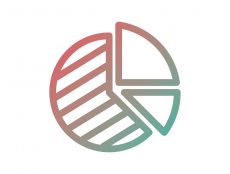
Articles
Editor’s Picks
Mental Health Apps for College Students Are Plagued by Mounting Need Mixed with Questionable Information
By Henry Kronk
October 28, 2019
On October 23, META, a college student-facing teletherapy smartphone app, published the results of a non-scientific survey they conducted. The company released a 24-question survey to 194 college students in September of this year in an effort to better understand the uses of their mental health app.
The findings paint a troubling picture. 66% of respondents reported experiencing anxiety; 55% experienced depression; 38% experienced suicidal thoughts; 22% experienced eating disorders; and 19% experienced obsessive-compulsive disorder. And finally, 70% of respondents who experienced one of these disorders did not seek professional help.
The META report uses these responses to underscore the need for their mental health mobile app, which provides a marketplace for mental health professionals to connect with students. These professionals can make their own META profile and conduct business via their app provided their license is recognized by the company.
Unfortunately, META’s survey would likely not hold up under peer review. College students should not be expected to successfully diagnose others, let alone themselves, with mental health disorders like depression or OCD.
Here’s the thing: by some scientific measures, META’s survey actually underplayed the issue.
Mental Health Is a Huge Issue on Campus
A 2011 Australian study compared mental health issues among university students with the general population. It found that 19.2% of students experienced diagnosable mental health issues, while 67.4% reported subsyndromal symptoms, both of which are significantly higher than the general population.
The Center for Collegiate Mental Health at Penn State has been tracking students who seek mental health services and presenting their findings in annual reports since the 2010-11 school year. Among students who sought help, rates for several behaviors, like self-harm, serious suicide ideation, suicide attempts, have risen continuously, according to their latest report.
While mental health services on campus might be extensive, furthermore, they’re likely to be maxed out beyond capacity by students seeking help.
If you are currently struggling with mental health, the licensed therapists at BetterHelp are ready to support you.
In other words, it would appear that scalable mental health interventions—potentially those delivered by a mobile app—might be able to have a huge effect. These come in many forms. Some might stand as basic informational interventions intended to nudge a learner’s mindset in a healthy direction. Others, like META, connect learners with mental professionals via chat, audio, or video conference.
Many Mental Health Apps, However, Have not Been Scientifically Tested
But at the same time, many of these apps have not been scientifically studied or vetted by mental health professionals. Harvard Medical School psychiatrist John Torous discussed mental health apps intended for the general population with Nature in 2016. “If you type in ‘depression’, it’s hard to know if the apps that you get back are high quality, if they work, if they’re even safe to use,” Torous said. “Right now it almost feels like the Wild West of health care.”
As time has gone on, however, some have begun to be put to the test. In 2018, an international team of researchers investigated the use of a German stress-relieving wellness site and app, StudiCare Stress. They compared their test group with a control of students who were placed on their university’s mental health treatment waiting list and eventually received help at some point down the line.
Their findings with StudiCare Stress were positive after seven weeks of treatment, and remained positive after a three month follow-up.
Mental health apps for college students—like many other education technology—tends to be very new and, as such, is largely untested. But at the same time, these interventions show huge promise.
Featured Image: Siora Photography, Unsplash.









No Comments